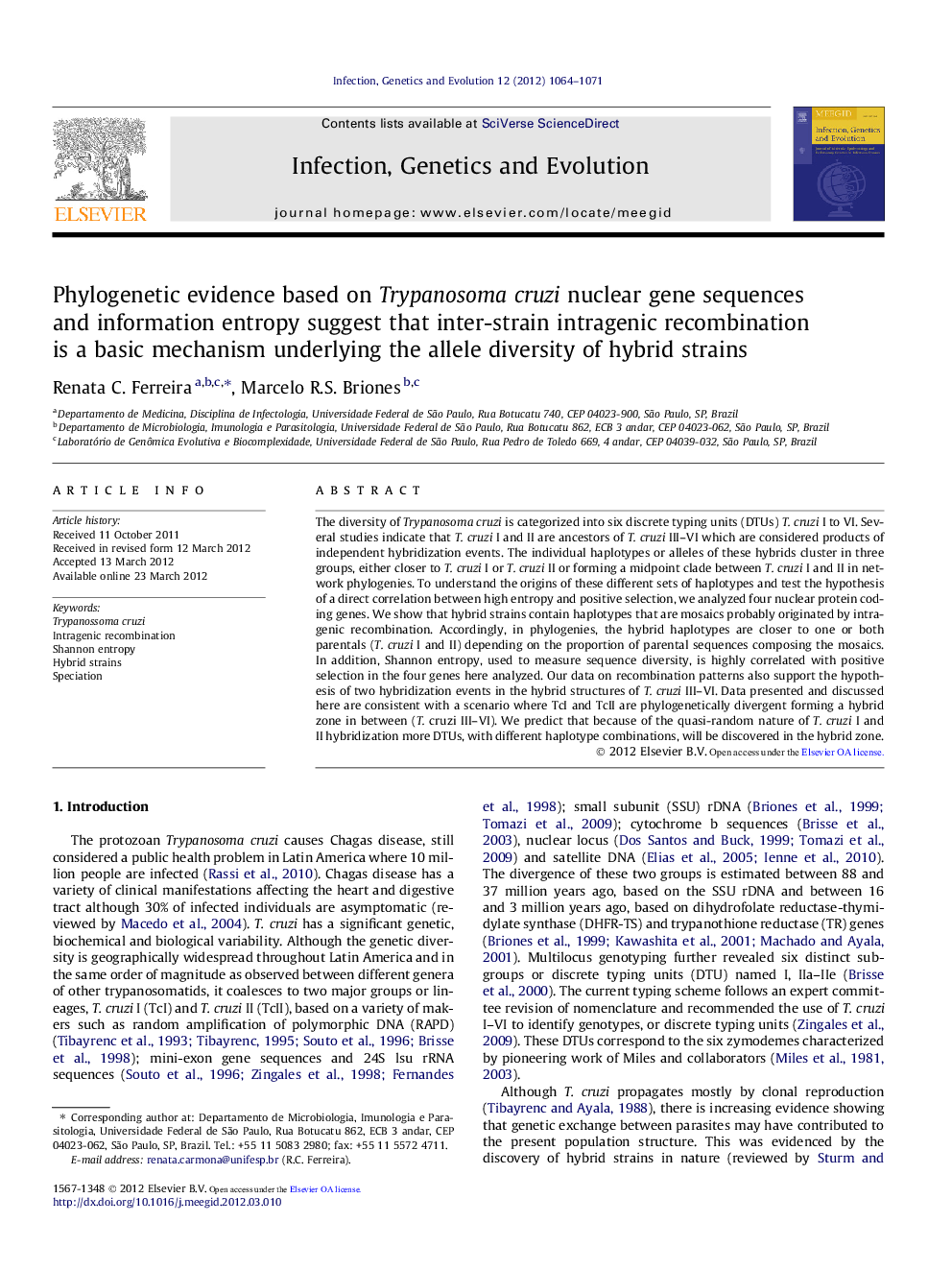| Article ID | Journal | Published Year | Pages | File Type |
|---|---|---|---|---|
| 5911219 | Infection, Genetics and Evolution | 2012 | 8 Pages |
The diversity of Trypanosoma cruzi is categorized into six discrete typing units (DTUs) T. cruzi I to VI. Several studies indicate that T. cruzi I and II are ancestors of T. cruzi III-VI which are considered products of independent hybridization events. The individual haplotypes or alleles of these hybrids cluster in three groups, either closer to T. cruzi I or T. cruzi II or forming a midpoint clade between T. cruzi I and II in network phylogenies. To understand the origins of these different sets of haplotypes and test the hypothesis of a direct correlation between high entropy and positive selection, we analyzed four nuclear protein coding genes. We show that hybrid strains contain haplotypes that are mosaics probably originated by intragenic recombination. Accordingly, in phylogenies, the hybrid haplotypes are closer to one or both parentals (T. cruzi I and II) depending on the proportion of parental sequences composing the mosaics. In addition, Shannon entropy, used to measure sequence diversity, is highly correlated with positive selection in the four genes here analyzed. Our data on recombination patterns also support the hypothesis of two hybridization events in the hybrid structures of T. cruzi III-VI. Data presented and discussed here are consistent with a scenario where TcI and TcII are phylogenetically divergent forming a hybrid zone in between (T. cruzi III-VI). We predict that because of the quasi-random nature of T. cruzi I and II hybridization more DTUs, with different haplotype combinations, will be discovered in the hybrid zone.
⺠Alignments of four Trypanosoma cruzi genes were used to test for intragenic recombination. ⺠A correlation between positive selection and entropy was investigated. ⺠Hybrid haplotypes are mosaics probably originated by intragenic recombination. ⺠We found a strong correlation between positive selection and entropy.
